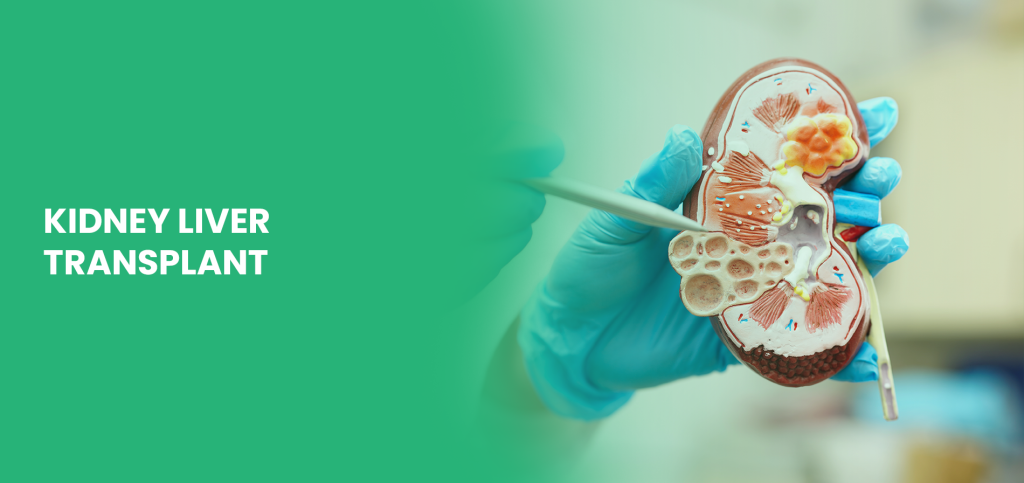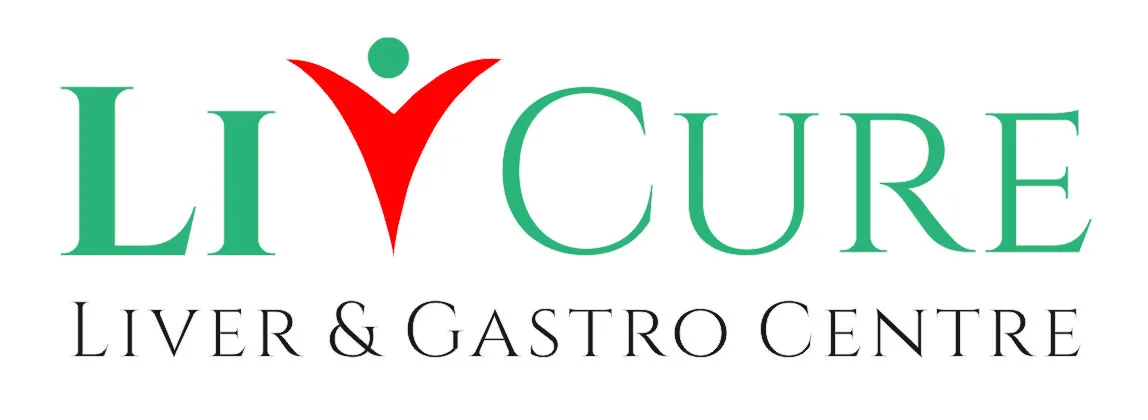
Patients who are suffering from End Stage Liver Failure and End Stage kidney failure and who have been on dialysis for more than 2 months are normally classified as eligible for simultaneous liver kidney transplant (LKT). Due to physiologic changes secondary to portal hypertension in patients with end-stage liver disease, kidney injury is common. A combined liver & kidney transplant in India is typically undertaken for patients suffering from cirrhosis with associated kidney diseases. The majority of these patients tend to have chronic renal failure owing to parenchymal renal ailments. Combined liver and kidney transplantation is a relatively uncommon surgical procedure. It must be performed by experienced surgical experts and multidisciplinary teams, as this surgery may have fatal consequences if not carried out with utmost competency. Combined liver & kidney transplant in India is performed almost exclusively with organs from deceased donors.
Living Donor Kidney and Liver Transplant Surgery can be done if the organs are donated by two different donors. Procuring both the kidney and liver from the same donor can be highly risky for the donor. Combined liver & kidney transplant and the replacement of two of the vital organs of the body simultaneously provide the advantages of a single surgery and superior chances of survival in comparison to the cases when a single organ alone is transplanted. Such a surgery can also lower immunosuppression dose. The surgery is done sequentially, first liver transplant is done by the Liver Transplant Team and then Kidney transplant is done by the Urology Team.
There are separate waiting list of the patients created by each transplant hospital for only Liver Tranplant or combined liver and kidney transplant. If a cadaveric donor becomes available then patient on the multi organ list will get priority over the patient who needs only liver transplant.
In order to get a cadaveric kidney and liver transplant, the patient has to be registered with an approved Organ Transplant Hospital. The hospital will upload the details of the patient on the web portal www.notto.gov.in. On this portal, each hospital will have their own waiting list and the deceased donor liver will be given to the hospitals by rotation. The liver which has been retrieved at a Government hospital will be given to the government hospitals and if the liver has been retrieved at a private hospital then it will be allocated to a private hospital. Metro Hospital at Faridabad is the latest addition to the list of private hospitals which have been approved for Liver Transplant. The waiting list of recipients at Metro hospital is therefore short and the chances to get a deceased donor liver transplant are much higher if the patient gets registered at Metro Hospital.
Once a deceased donor liver is available, the patient who is highest in the wait list will get a call to come immediately to the hospital. Pre surgery tests would be carried out after admitting the patient to the hospital. During the surgery, Liver transplant surgeon will give a long incision on the abdomen and remove the diseased liver and gall bladder. The surgeon then places the donor liver in the body of the patient. The liver is then attached to bile ducts and blood vessels are connected. The surgery would take 8-10 hours and a team of liver transplant surgeons, anaesthetists and specially trained ot techs would assist the Chief surgeon. The urology team will then perform the kidney transplant surgery and this surgery would take 1-2 hours to be completed.
Once the liver and kidney has been placed and connected, the surgeons will close the incision using stitches or staples. The patient is shifted to the ICU after the surgery. The hospital stay of the patient for Liver Transplant Surgery would be 25-30 days.
After the surgery, the patient is kept in intensive care unit (ICU) for 5-7 days for better care and continuous monitoring. Blood tests are carried out regulary to check your health parameters including the functioning of the new liver and kidney. Once all the health parameters are stable, the patient is shifted to the room. The stay in the room could be anywhere from 5 days to 25 days depending upon the speed of your recovery. Most of the patients who have been waiting for a long time for liver and kidney transplant do not have a good health so their recovery takes more time than those who get Living Donor Liver Transplant. Once you are discharged from the hospital, you will continue to recover at home. You would be required to get some blood tests while you are recovering. You will have to take several medicines during the recovery period which normally lasts for 6 months. Some medicines called immunosuppressents have to be taken lifelong. These medicines will suppress your immune system and prevent the rejection of the new liver and kidney by the body. However since these immunosuppressents reduce the immunity of your body, you will be more susceptible to other infections. You will therefore have to take much more care of your health as compared to other people who have not undergone such a surgery.
The cost of hospitalization, tests, surgery and medicines during your hospital stay would be Rs. 27-35 Lacs or USD 50-60 thousand for International patients. If you have to stay in a hotel after discharge from the hospital then that cost would be extra. Combined Liver and Kidney Transplant surgery has a good success rate and 5 year survival after the surgery is close to 80% at most of the centres in India. Dr. Ankur Garg has been the Chief Liver Transplant Surgeon at Nanavati Hospital before joining Metro Hospital, Faridabad.

